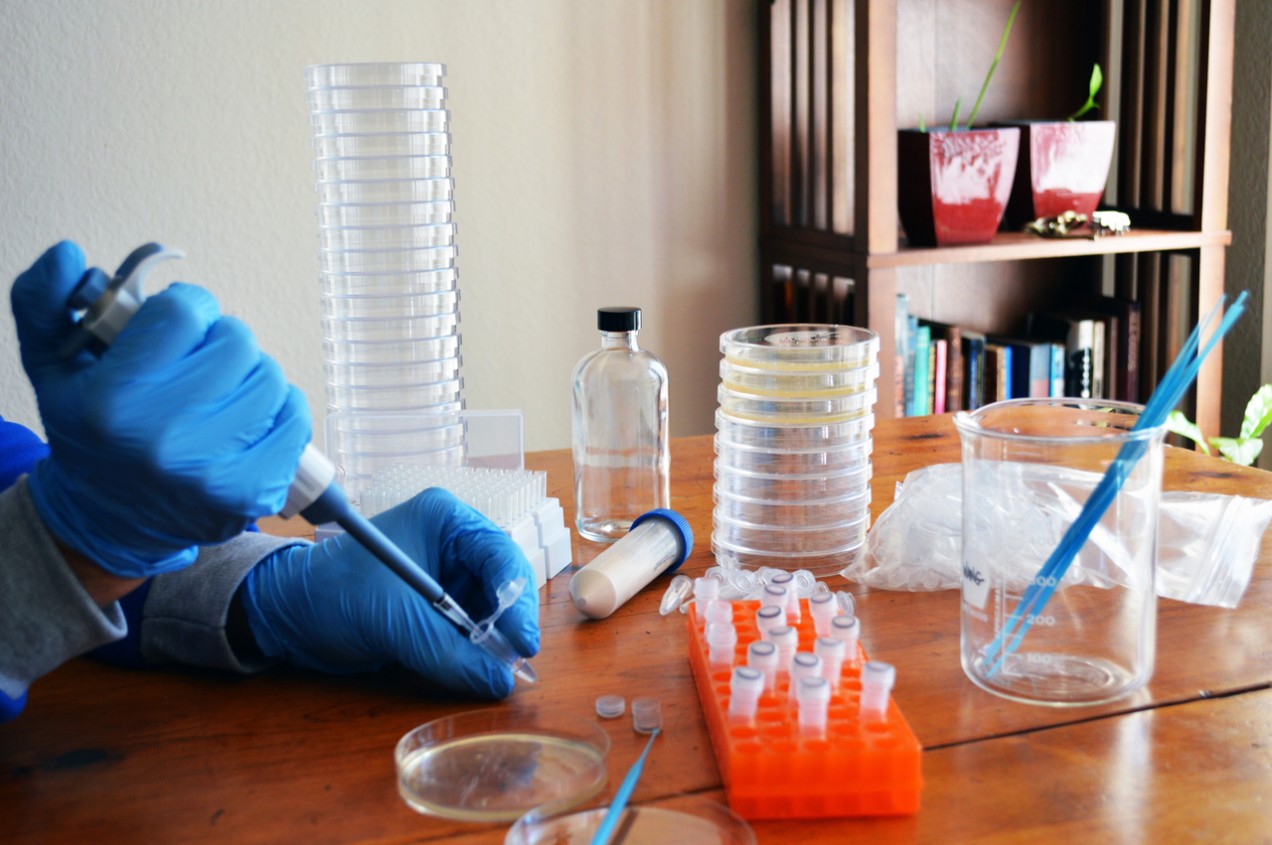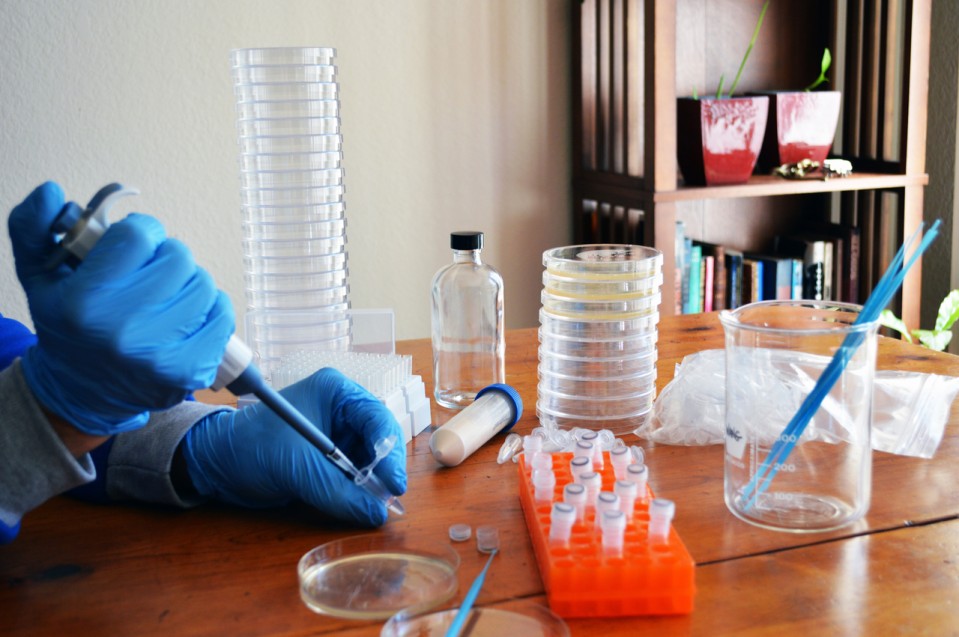

Biotechnology / Genetic Engineering
Biohackers Disregard FDA Warning on DIY Gene Therapy
The agency seeks a crackdown on companies offering kits to produce gene therapies for self-administration.

Despite a warning from the federal government about do-it-yourself gene therapy, two companies say they’ll continue offering DNA-altering materials to the public.
The companies, The Odin and Ascendance Biomedical, both recently posted videos online of people self-administering DNA molecules their labs had produced.
Following wide distribution of the videos, the U.S. Food and Drug Administration last week issued a harshly worded statement cautioning consumers against DIY gene-therapy kits and calling their sale illegal. “The sale of these products is against the law. FDA is concerned about the safety risks involved,” the agency said.
The agency declined to specify what products it was referring to. Executives at both firms said they might be the target of the warning, but they have not been contacted by the FDA.
In a statement to MIT Technology Review, the FDA said that “information about the agency’s inspection and surveillance activities, including whether the agency is considering action, is generally not made available to the public unless and until enforcement action is taken.”
Normally, drug makers must seek the agency’s permission to test new drugs, a process that often takes years and costs hundreds of millions of dollars. But now a growing number of cases of DIY gene therapy are putting the health regulator in a difficult situation as individuals argue that no law stops them from self-administering the substances. In fact, there is a long history of scientists carrying out experiments on themselves, including some Nobel Prize winners.
Last month, Josiah Zayner, CEO of The Odin, which sells DIY biology kits and supplies through its website, posted a video in which he injected himself with the gene-editing tool CRISPR during a biohacker conference in California. That video has been viewed more than 58,000 times on YouTube.
In its statement, which FDA Commissioner Scott Gottlieb tweeted on November 21, the same day it was posted to the agency’s website, the regulator took aim directly at companies selling CRISPR supplies intended for self-administration.
“I think that’s totally in response to the experiment I did on myself,” says Zayner, a self-described biohacker who promotes the idea that anyone should be able to participate in scientific experimentation.
Unknown risks
Experts say any gene therapy prepared by amateurs would probably not be potent enough to have much effect, but it could create risks such as an immune reaction to the foreign DNA. “I think warning people about this is the right thing,” says David Gortler, a drug safety expert with the consulting group Former FDA. “The bottom line is, this hasn’t been tested.”
The problem facing regulators is that interest in biohacking is spreading, and it’s increasingly easy for anyone to obtain DNA over the internet. It’s also easy to get hold of the recipes necessary to carry out gene editing using CRISPR, a potent new technique for modifying DNA.
In October, Zayner’s website began selling $20 copies of a DNA molecule containing the necessary genetic information to deactivate the human gene for a certain protein, myostatin, using CRISPR.
Animals without that gene develop extra-large muscles, so it is frequently cited by biohackers as a target for self-improvement experiments.
Zayner says selling the supplies isn’t illegal because it’s not up to him how people use them. His website warns that the product is “not injectable or meant for direct human use.” Human DNA can be purchased through a number of other companies that cater to research labs. The difference is The Odin markets its DNA to amateur biologists.
“The DNA we sell is kind of to inspire people, and maybe people will buy the DNA and use it. I don’t really have a problem with that,” says Zayner. He said he won’t stop selling any of his products in light of the FDA’s statement last week.
Related Story
Tracking the Cost of Gene Therapy
Though expensive now, prices could get cheaper for more common diseases.
The materials sold by The Odin also can’t be directly used to alter a person’s genes. Instead, they contain DNA that would have to be produced in larger amounts, purified, and then delivered to the body using methods well beyond the skills of most consumers—methods that might involve viruses, additional chemicals, or electric shocks.
“I think we place at least a small barrier for entry where someone has to at least know what they’re doing before they can just inject it,” says Zayner.
Self-experimentation
At least one other company appears to have begun offering finished gene-therapy preparations directly to patients for their own use. In October, an HIV patient named Tristan Roberts was filmed live on Facebook injecting himself with a gene therapy designed to generate antibodies that he believed would help his body destroy cells infected with the virus.
The material he used was supplied by Ascendance Biomedical, an until recently unknown startup company that promotes “decentralized” testing of new drugs. The FDA warning was released the same day as a BBC report describing Roberts’s self-experiment.
Aaron Traywick, the CEO of Ascendance, who believes his company might be the target of the agency’s warning, says the experiment was legal because Ascendance didn’t charge Roberts for the therapy.
“The FDA believes we’re doing something that we’re not,” Traywick says. “They believe we’re providing a compound and marketing a compound for a specific health purpose and providing it for sale, and we are not.” He says the company is offering the therapy for research purposes only.
Typically, the FDA requires that companies first seek permission, through an investigational new drug application, or IND, before testing a new treatment in human participants. Traywick says Ascendance has not obtained one.
The company is also developing a herpes vaccine, as well as a gene therapy to boost muscle mass and reduce fat. He says Ascendance plans to make both of those therapies available for self-administration by early next year.